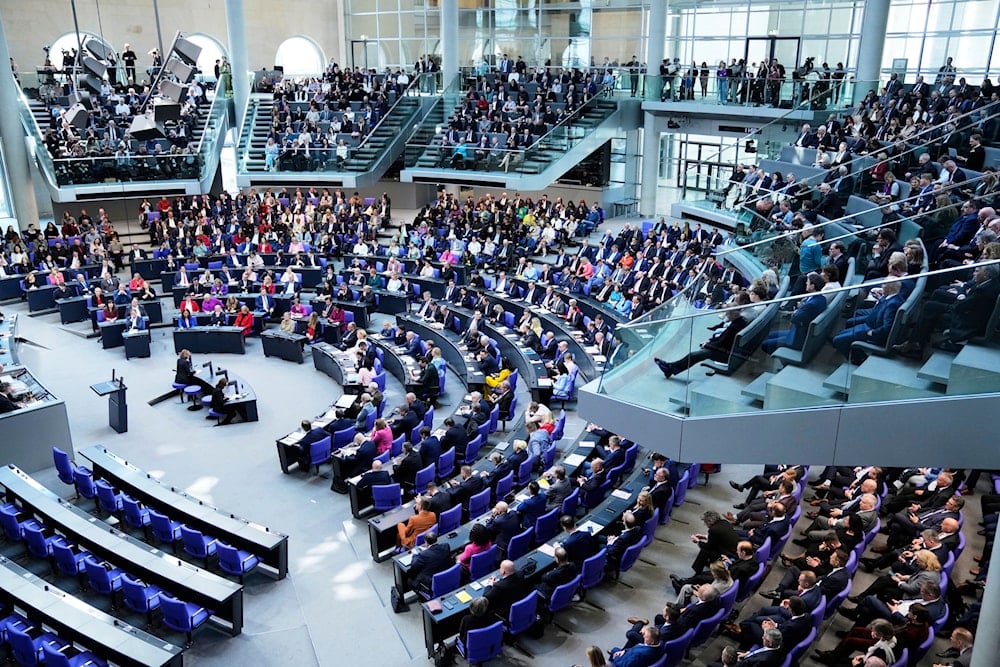Germany to hike minimum wage in 2025
Germany will raise its minimum wage to 13.90 euros in 2026, aiming to support its economy and ease inflation’s impact on workers.
-

Lawmakers attend the constituent session of the newly elected German Parliament Bundestag in Berlin, Germany, Tuesday, March 25, 2025 (AP)
Germany is preparing to increase the legal minimum wage in the coming year after an independent commission issued its recommendations on Friday, a decision that has the potential to stimulate the country's struggling economy.
Currently set at 12.82 euros ($15.04) per hour, the minimum wage is expected to increase to 13.90 euros at the beginning of 2026, followed by a further rise to 14.60 euros in the subsequent year, according to recommendations from a commission composed of employers and trade unions.
The proposed increase, which the government is likely to approve, comes slightly below the 15 euros per hour target advocated by the Social Democrats, who serve as the junior coalition partner to Chancellor Friedrich Merz's conservative bloc.
The wage hike is expected to increase operational expenses for businesses while providing relief to workers impacted by years of high inflation, potentially encouraging greater consumer spending as Steffen Kampeter, head of the Federation of German Employers' Associations, noted that "you can assume this money will go directly and entirely into consumption, sustainably supporting the economy."
Decision received positively
The services sector union Verdi described the raise as "a considerable financial improvement for workers in the low-wage sector."
Commission chairwoman Christiane Schoenefeld stated that employer and employee representatives decided on the new wage level "unanimously," welcoming "a consensual decision" achieved despite "political pressure" and challenging circumstances amid "the stagnant economic situation and uncertain forecasts."
In comments to the news weekly Der Spiegel, Monika Schnitzer, head of the Council of Economic Experts, praised the "wise decision," noting that the phased implementation of increases would allow the economy sufficient time to adapt.
Explaining the context of the wage adjustment, she noted, "We are coming out of a phase in which inflation rose very sharply while the minimum wage was only raised moderately," while emphasizing that current wage increases are now helping workers compensate for the previously elevated cost of living.
While the planned increase in Germany’s minimum wage aims to boost consumer spending and support workers burdened by inflation, its implementation will be increasingly difficult in light of the government's intention to raise military spending to 5% of GDP.
Germany aims for 3.5% core military spending by 2029, part of a roadmap toward NATO’s broader 5% target by 2035.
Such a significant expansion of defense outlays, well above the NATO 2% benchmark, will place intense pressure on the federal budget, likely resulting in cutbacks or constraints on social and economic policy initiatives.
With public funds being diverted toward rearmament, the government may face growing challenges in balancing its fiscal priorities, sustaining welfare programs, and supporting businesses expected to absorb higher wage costs, particularly in a sluggish economy with uncertain forecasts.

 3 Min Read
3 Min Read










